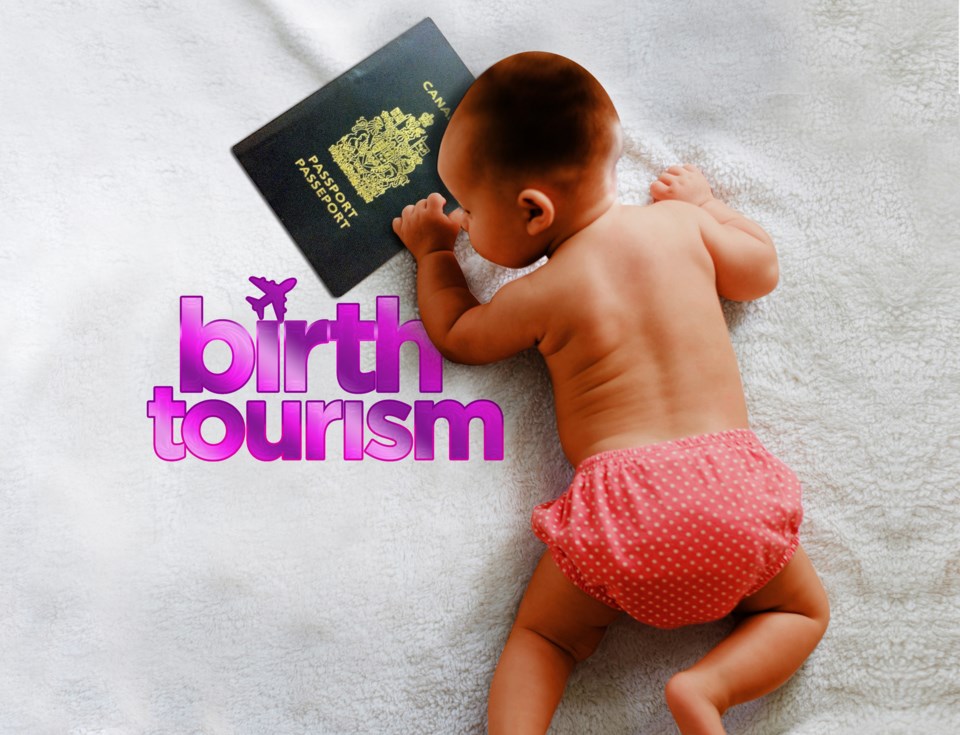Non-residents paying to give birth at Richmond Hospital accounted for 22 per cent of all births last year, up from 17 per cent the year prior.
In the 2017/2018 fiscal year, Vancouver Coastal Health reported 474 babies born in Richmond to 469 non-residents, who were invoiced $6.2 million, of which $1.1 million has yet to be paid, according to officials.
Non-resident births exploded in Richmond in 2014. Over the past four years, Richmond Hospital has birthed 1,493 babies from non-resident mothers, accounting for 17.6 per cent of all births (8,493).
Widely thought to be foreigners, largely from China, seeking to gain Canadian citizenship by birthright for their newborns, an online Parliamentary petition ending July 17 seeks to have the federal government condemn the rising rate of birth tourism and explore methods to discourage the burgeoning cross-border business.
The petition was created by local community activist Kerry Starchuk and is sponsored by Liberal MP Joe Peschisolido.
Richmond is home to several birth houses. As part of advertised month-to-month accommodation packages, birth house operators typically assist women coming from overseas to give birth to an “anchor baby.”
It is not illegal to enter Canada to give birth but it is illegal to misrepresent your intentions, according to Canada Border Services Agency.
Starchuk is opposed to the practice on ethical grounds and Peschisolido has called it an abuse of the immigration system, although he wants to maintain birthright citizenship.
Non-residents are required to make a pre-payment deposit of $8,200 for a vaginal birth and $13,300 for a caesarean birth. Non-residents are required to pay all hospital costs and medical care for the mother and baby, according to VCH spokesperson Carrie Stefanson.
Not all the bills are being paid, however, particularly when costs exceed a routine birth.
In the past year, VCH invoiced non-residents for approximately $6.2 million in maternity services at Richmond Hospital, and recovered approximately 82 per cent of that amount, said Stefanson, via email.
“It’s important to note that the larger value maternity cases arising from complications skew the VCH recovery statistics,” said Stefanson.
VCH is presently suing a woman for skipping out on a $312,595 neonatal bill in 2012. The claim could be worth as much as about $1.2 million, including interest.
The News understands that VCH has no way to ensure security against a large maternity bill. A baby of a non-resident’s baby does not qualify for public health insurance (MSP).
“Vancouver Coastal Health will never deny urgent and emergent care based on ability to pay or where a patient is from, but we do expect to be compensated as we are accountable to BC residents for hospital and health care services,” said Stefanson.
“We are committed to collecting compensation from non-residents who use our medical services;” she added.
“We encourage women intending to use Richmond Hospital’s maternity services to pre-register with us 6-8 weeks prior to their due date. This may not reduce demand on our services but it will help us be more proactive in our planning. Most women pre-register and receive prenatal care.”
Nationality isn’t routinely tracked but a tabulation by hospital officials in 2016 showed Chinese nationals accounting for 98 per cent of non-resident births. According to some birth house operators, Richmond is a popular location for Chinese nationals due to the city's multilingual services and proximity to China as a Western country that allows such automatic citizenship. Only Canada and the U.S. allow two non-status foreigners to give birth on its sovereign soil and have their baby become a citizen. The practice is under greater scrutiny from U.S. President Donald Trump.



